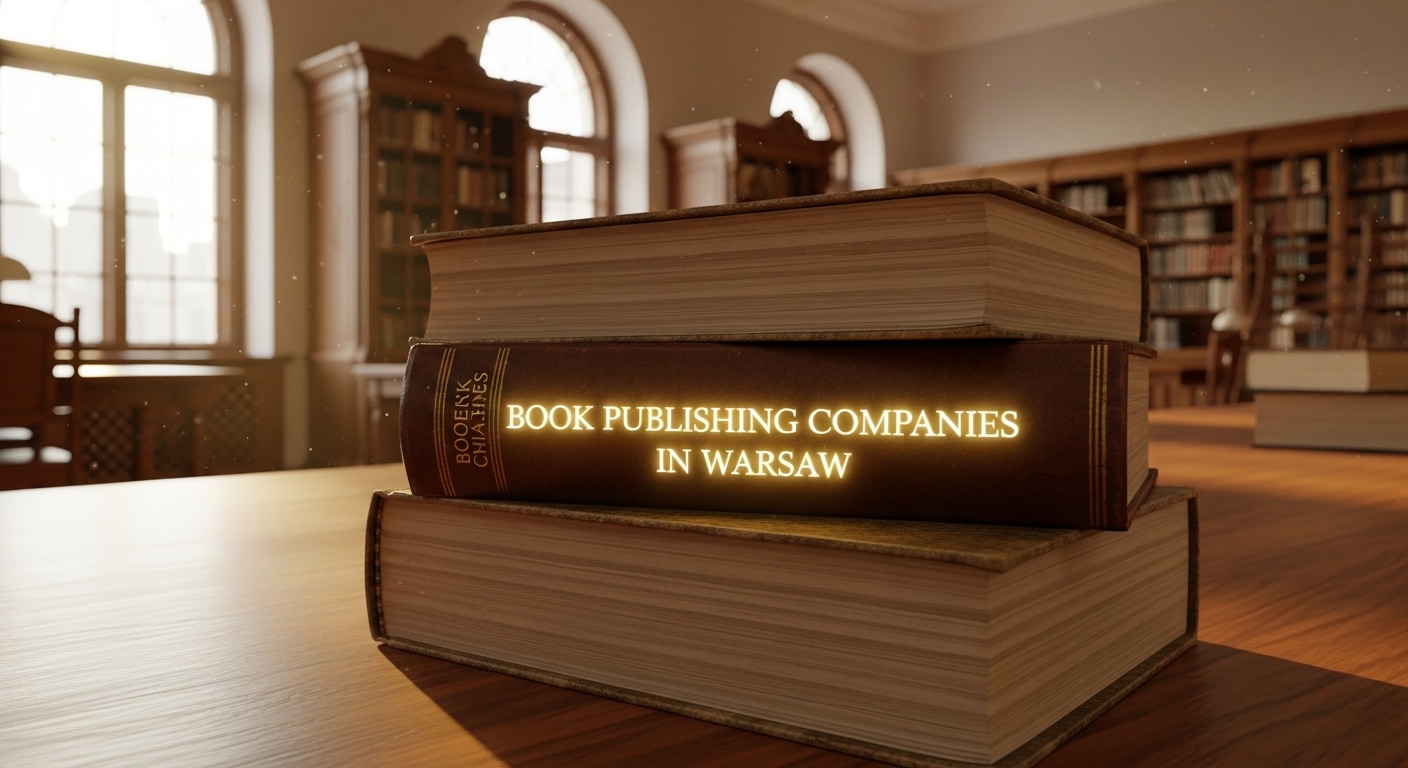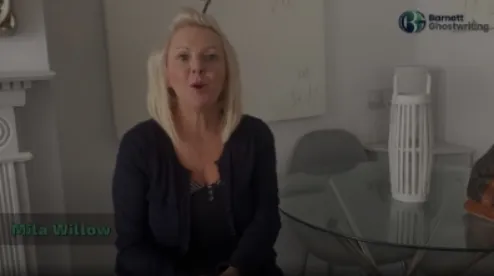
Warsaw’s publishing scene in 2025 is a lively blend of long-standing houses, nimble independent presses, and service-oriented publishers who help authors navigate editing, design, and distribution. Poland’s capital remains the country’s cultural and literary hub: major literary awards, translation projects, and a steady appetite for both fiction and nonfiction keep the market vibrant. This guide highlights ten notable publishing companies that authors and readers in Warsaw are watching this year.
1. Barnett Ghostwriting
Barnett Ghostwriting operates as a hybrid publisher and full-service author-support firm. While known internationally for ghostwriting services, in Warsaw they combine author coaching with publishing packages geared toward first-time and mid-career authors.
Overview: Barnett offers manuscript development, editorial packages, cover and interior design, and assistance with both traditional and self-publishing channels.
Strengths:
-
- Strong project management for complex nonfiction projects.
- Flexible engagement models — from commissioned ghostwriting to advisory-only roles.
- Emphasis on author voice preservation alongside professional polish.
Typical authors: Business leaders, memoir writers, and experts converting lectures or workshops into books.
What to expect: A collaborative process with staged deliverables (outline → draft → edits → publication support).
2. Wydawnictwo Literackie
Wydawnictwo Literackie is one of Poland’s respected literary houses with a long history of publishing contemporary fiction, translated works, and literary nonfiction.
Overview: Established literary imprint with a strong editorial team and presence in national cultural programming.
Strengths:
-
- Deep editorial experience and strong connections with literary critics and festivals.
- Focus on curated lists rather than high-volume releases.
Typical authors: Literary novelists, essayists, and prominent translators.
What to expect:
-
- Rigorous editorial development.
- Professional production values and targeted publicity in literary circles.
3. Wydawnictwo Agora
Agora’s publishing arm blends commercial nonfiction, journalism-related titles, and narrative nonfiction. It often publishes books that intersect with current affairs, media, and social commentary.
Overview: Publisher linked to a major media group with resources for cross-platform promotion.
Strengths:
-
- Access to media channels for promotional tie-ins.
- Competitive editorial and fact-checking standards for nonfiction.
Typical authors: Journalists, public intellectuals, and authors writing on contemporary society.
What to expect:
-
- Strong copyediting and publicity support.
- Potential for multimedia promotion thanks to media group connections.
4. Znak
Znak is known for publishing a wide spectrum—from academic and spiritual works to literary fiction and accessible nonfiction. It maintains a reputation for thoughtful curation.
Overview: Diversified imprint with both serious nonfiction and select fiction.
Strengths:
-
- Balanced catalogue that straddles intellectual and mainstream audiences.
- Experienced editorial teams and attention to book design.
Typical authors: Scholars, translators, and literary nonfiction writers.
What to expect:
-
- Steady editorial process and respectable placement in bookstores and libraries.
5. Czarna Owca
Czarna Owca is a Polish independent publisher with a reputation for contemporary fiction and sharp translations of international authors. It often champions bold voices and contemporary trends.
Overview: Independent imprint that invests in contemporary, often edgy fiction and high-quality translations.
Strengths:
-
- Strong editorial taste and willingness to publish riskier, boundary-pushing work.
- Engaged readership and effective social-media–driven campaigns.
Typical authors: Contemporary novelists, young adult crossover writers, and translators.
What to expect:
-
- Vibrant cover design, focused marketing, and a community-oriented publicity approach.
6. Wilga
Wilga focuses on children’s and young-adult literature and remains a key player in Warsaw for family-oriented publishing.
Overview: Specialist imprint with robust production for children’s picture books, educational titles, and YA fiction.
Strengths:
-
- Strong relationships with schools, libraries, and educational buyers.
- Well-resourced art direction and production for illustrated books.
Typical authors: Children’s authors, illustrators, and educational content creators.
What to expect:
-
- High standards for illustration and layout, plus coordinated outreach to educators.
7. W.A.B.
W.A.B. publishes both fiction and nonfiction with a mix of commercial and literary titles. It is known for accessible literary fiction and well-produced nonfiction that appeals to a broad readership.
Overview: Mid-size publisher with a balanced list and pragmatic approach to marketing.
Strengths:
-
- Good distribution network and a track record of midlist successes.
- Editorial focus on readability and market fit.
Typical authors: General-interest nonfiction writers, commercial fiction authors, and memoirists.
What to expect:
-
- Strategic marketing campaigns and solid bookstore placement.
8. Karakter
Karakter is a smaller, design-conscious independent press that often champions translated literary fiction and thoughtfully produced nonfiction.
Overview: Boutique publisher that prizes design and careful editorial selection.
Strengths:
-
- Elegant book design and attention to typographic details.
- Careful selection process ensures cohesive lists.
Typical authors: Translators, literary fiction authors, and specialists in cultural nonfiction.
What to expect:
-
- Low-volume, high-quality editions and targeted promotion to discerning readers.
9. Rebis (Polish operations/editions)
Rebis tends to publish a broad array of translated fiction and nonfiction and is known for bringing international bestsellers and genre fiction to Polish readers.
Overview: Publisher with a mix of popular and genre titles; often involved in rights acquisitions and translations.
Strengths:
-
- Agile acquisition of foreign titles and efficient translation workflows.
- Strong presence in commercial genres like thrillers and mainstream nonfiction.
Typical authors: Genre fiction writers (thrillers, crime), popular science authors, and translated bestsellers.
What to expect:
-
- Fast-to-market translations and broad distribution.
10. Czarne
Czarne is an independent publisher with a reputation for documentary and reportage books, as well as socially engaged nonfiction. It often publishes investigative works and literary journalism.
Overview: Publisher with a strong editorial line in reportage and socially conscious nonfiction.
Strengths:
-
- Deep expertise in long-form reportage and documentary-style books.
- Reputation for producing books that contribute to public debate.
Typical authors: Reporters, investigative journalists, and authors of social nonfiction.
What to expect:
-
- Thorough fact-checking, serious editorial investment, and targeted outreach to civic-minded readers.
How these publishers compare
- Barnett Ghostwriting — author services + hybrid publishing model (best for authors needing hands-on project management).
- Wydawnictwo Literackie — literary prestige and festival presence.
- Agora — media-backed publicity reach for current-affairs books.
- Znak — intellectual and culturally resonant lists.
- Czarna Owca — contemporary fiction and bold translations.
- Wilga — children’s and educational publishing excellence.
- W.A.B. — reliable mid-market publisher with practical marketing.
- Karakter — design-forward boutique house.
- Rebis — strong in translations and commercial genres.
- Czarne — investigative reportage and socially engaged nonfiction.
Practical advice for authors targeting Warsaw publishers
- Prepare a concise proposal: a one-page synopsis, target audience, competitive titles, and a short author bio. For fiction, include a polished sample of the first three chapters.
- Know the house’s list: tailor submissions to publishers whose recent titles align with your manuscript’s tone and audience.
- Expect editorial revision: most reputable houses will require substantive editorial work; be prepared for rounds of revision.
- Rights & format: clarify territorial and language rights in any agreement; ask whether the publisher handles e-book, audiobook, and foreign rights.
- Timeline: publishing cycles vary — from several months for smaller houses to a year or more for larger, curated lists.
Conclusion
Warsaw’s publishing landscape in 2025 offers something for almost every kind of author — from full-service support at hybrid firms like Barnett Ghostwriting to the refined curation of literary houses such as Wydawnictwo Literackie and Karakter. Whether you’re a debut novelist, a specialist writing trade or academic nonfiction, or an author of children’s books, the key is to match your manuscript to the publisher’s strengths and to approach submission with a clear, professional package. The ten publishers above represent a cross-section of Warsaw’s strengths: editorial seriousness, production quality, market reach, and a commitment to supporting Polish and translated literature alike.
Short checklist before submitting
- Polish your manuscript: three passes (structure, line edits, copyedit).
- Create a one-page pitch and a 300-word hook.
- Research the imprint’s recent titles and submission preferences.
- Prepare a realistic timeline and budget for possible services (translation, proofreading, design).
- Keep records of correspondence and contracts; ask about rights reversion clauses.





